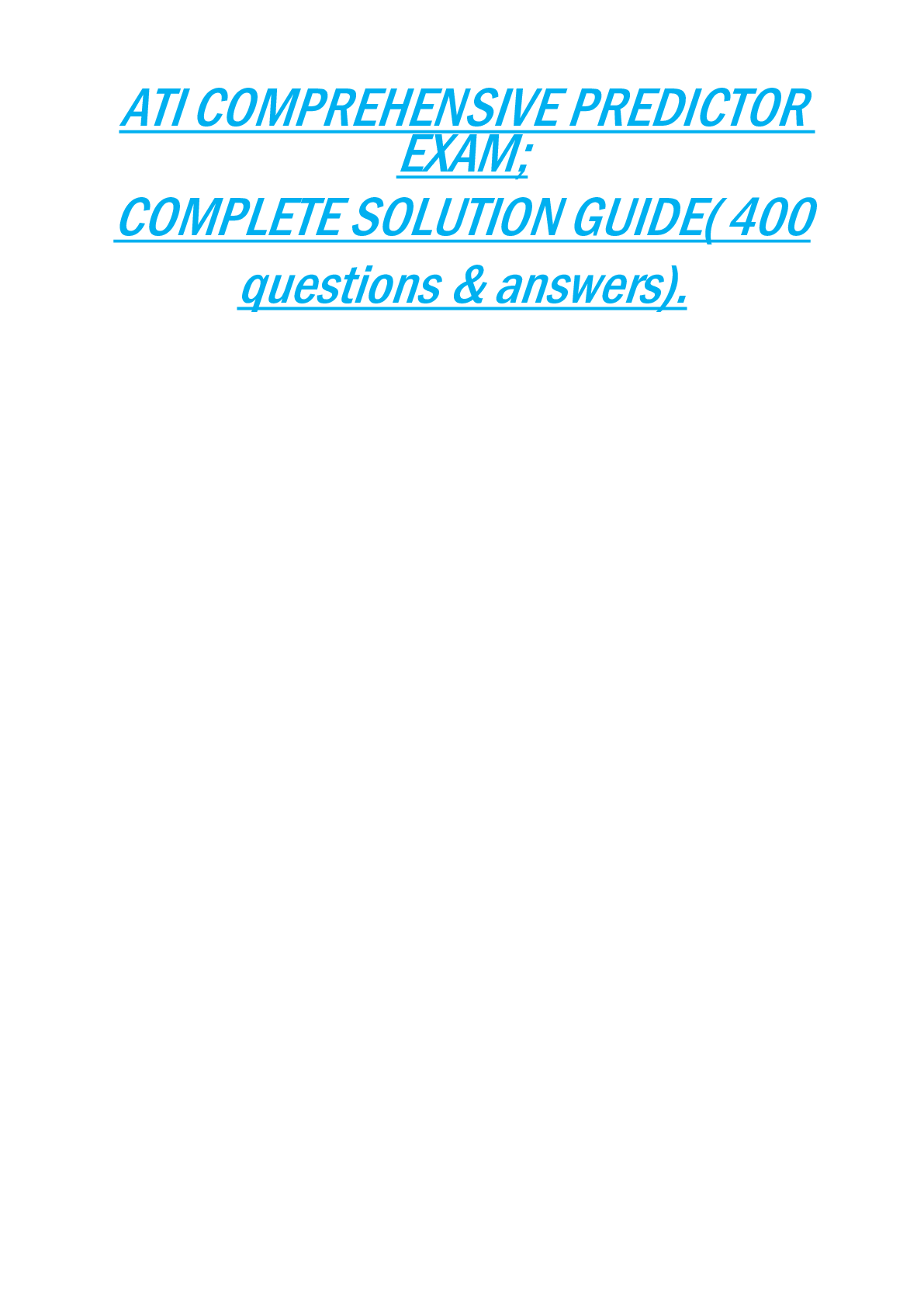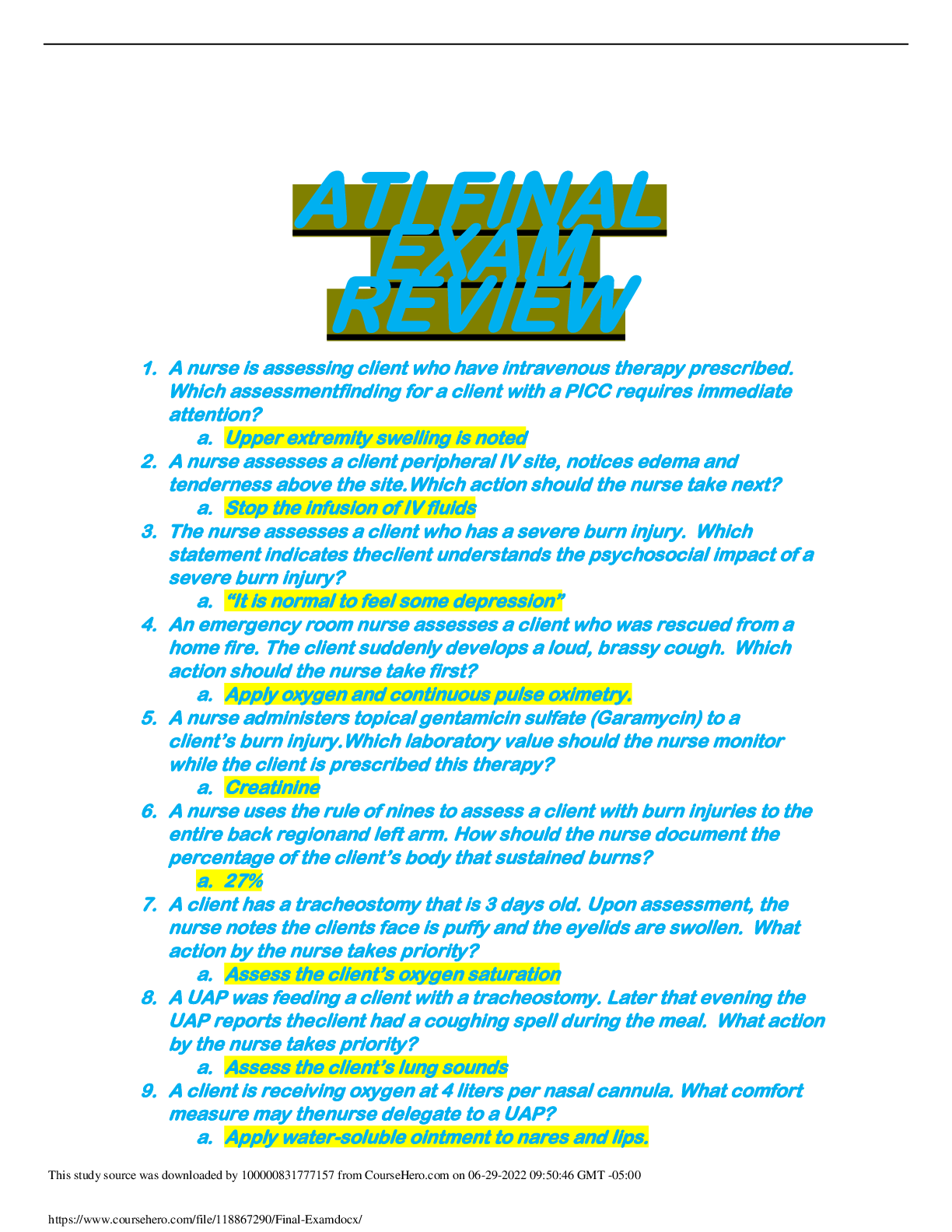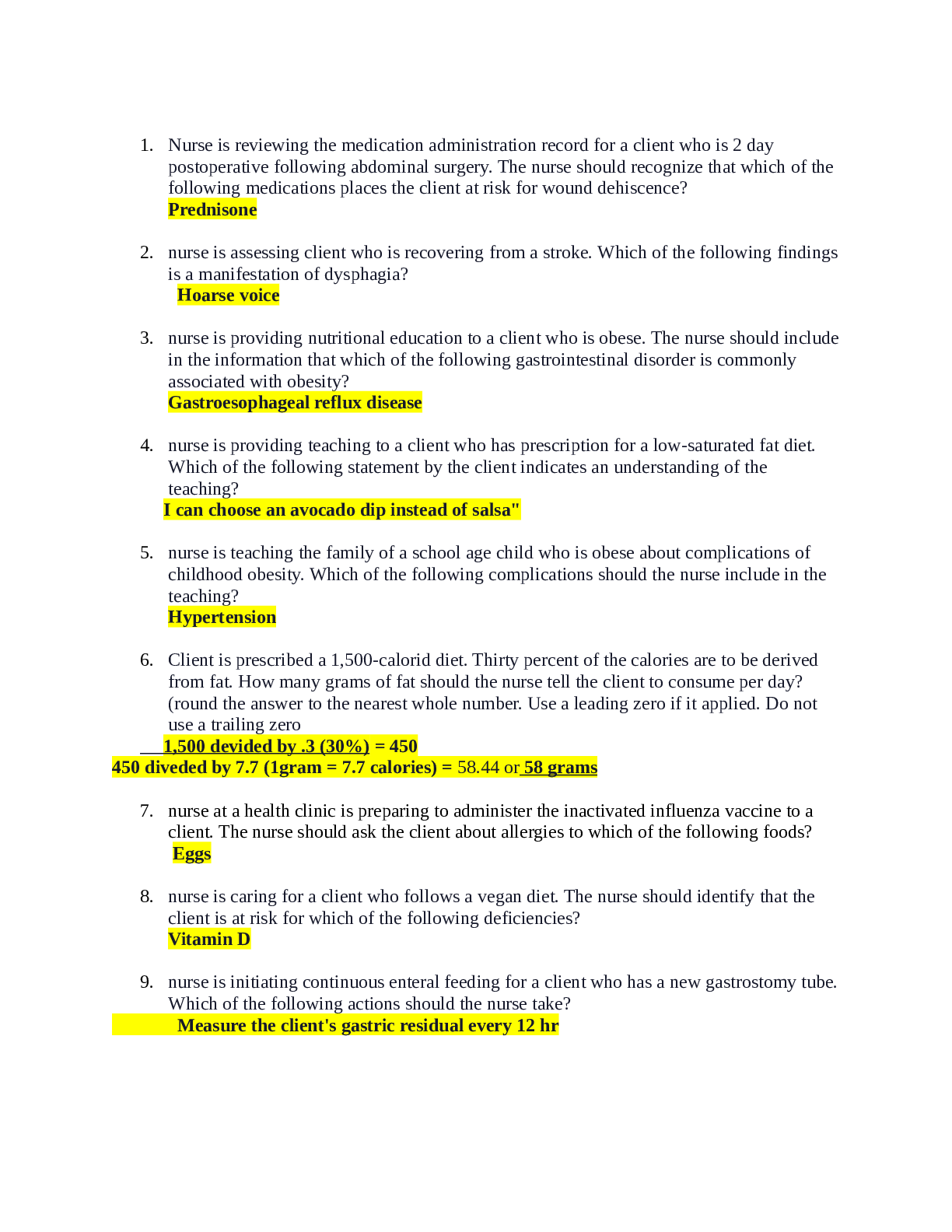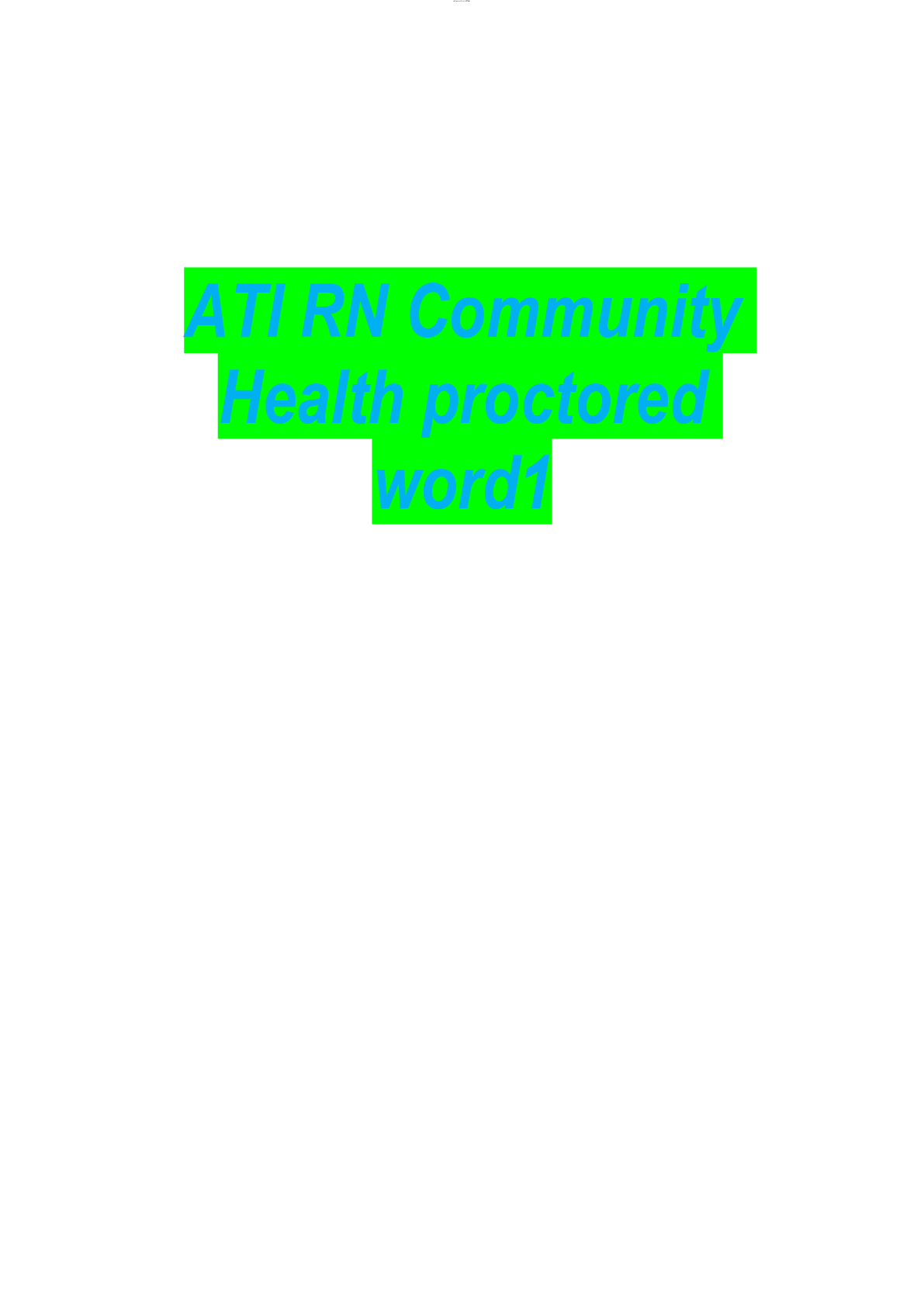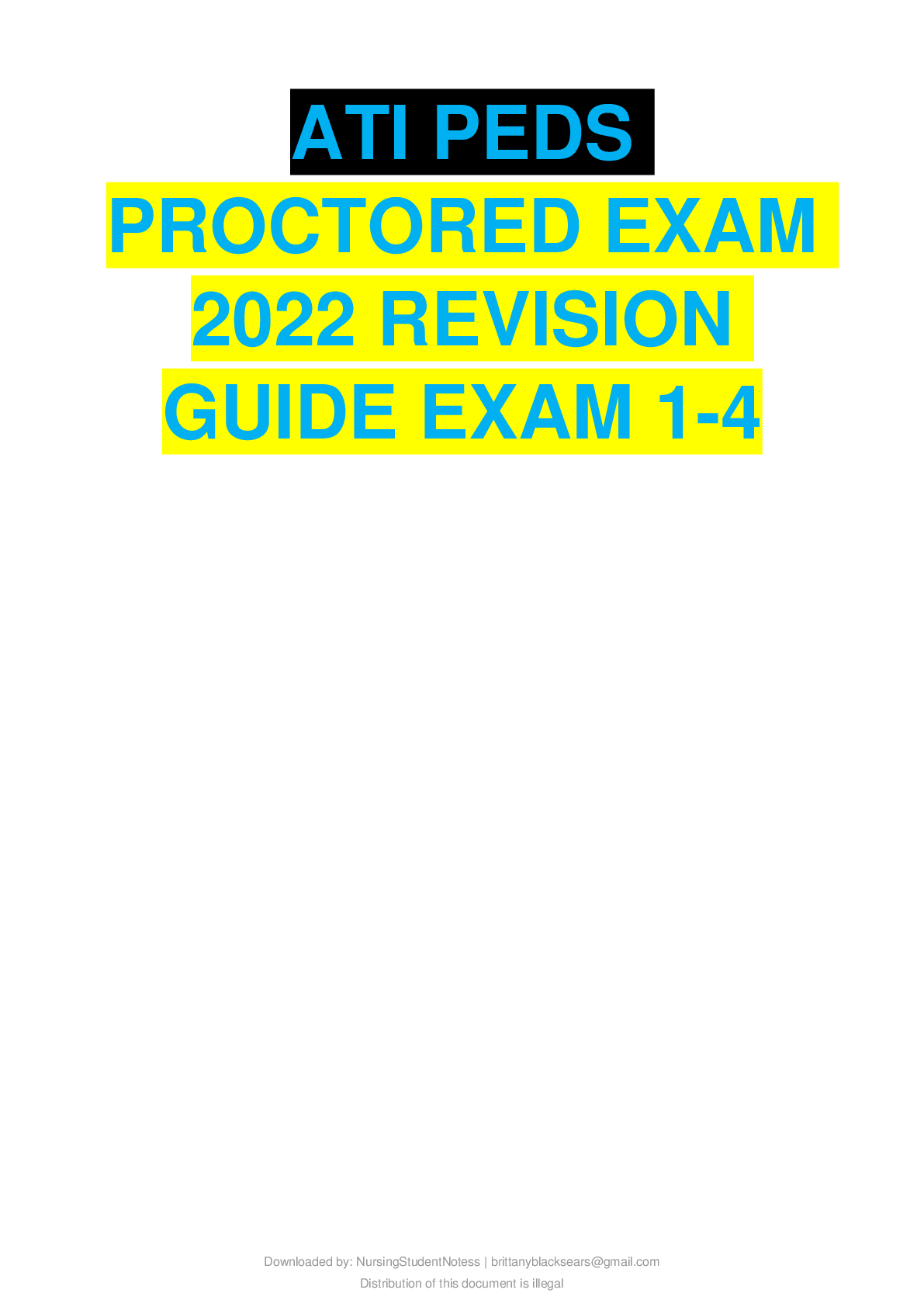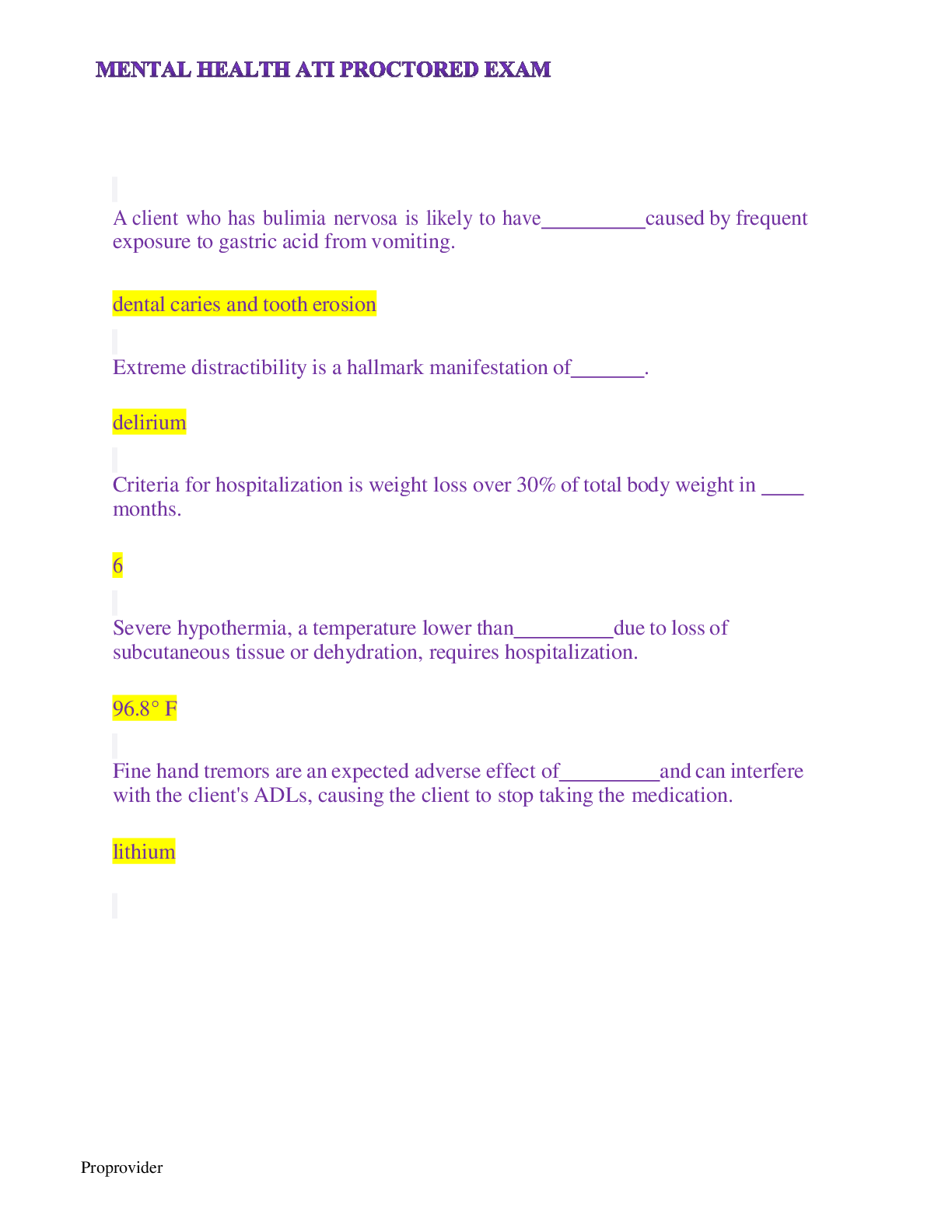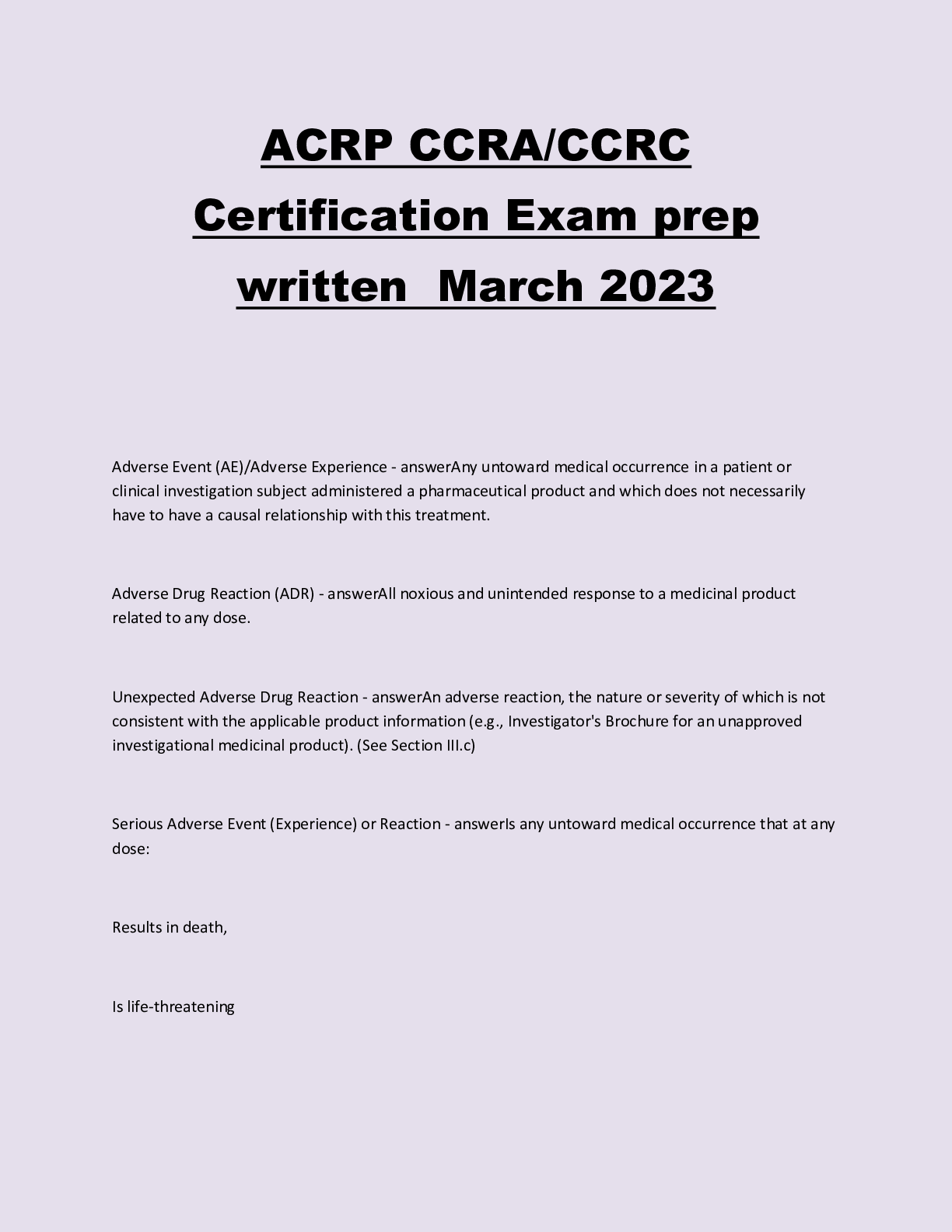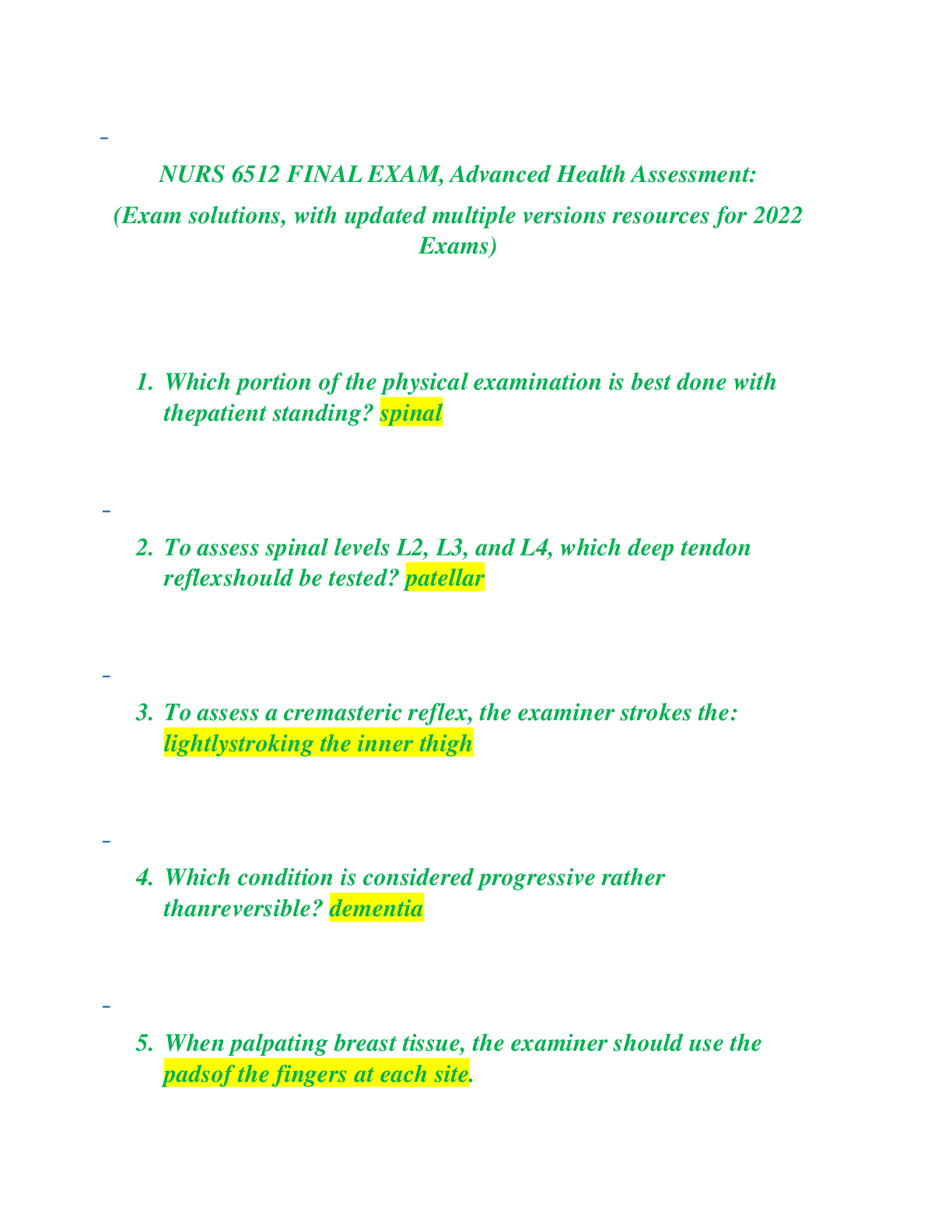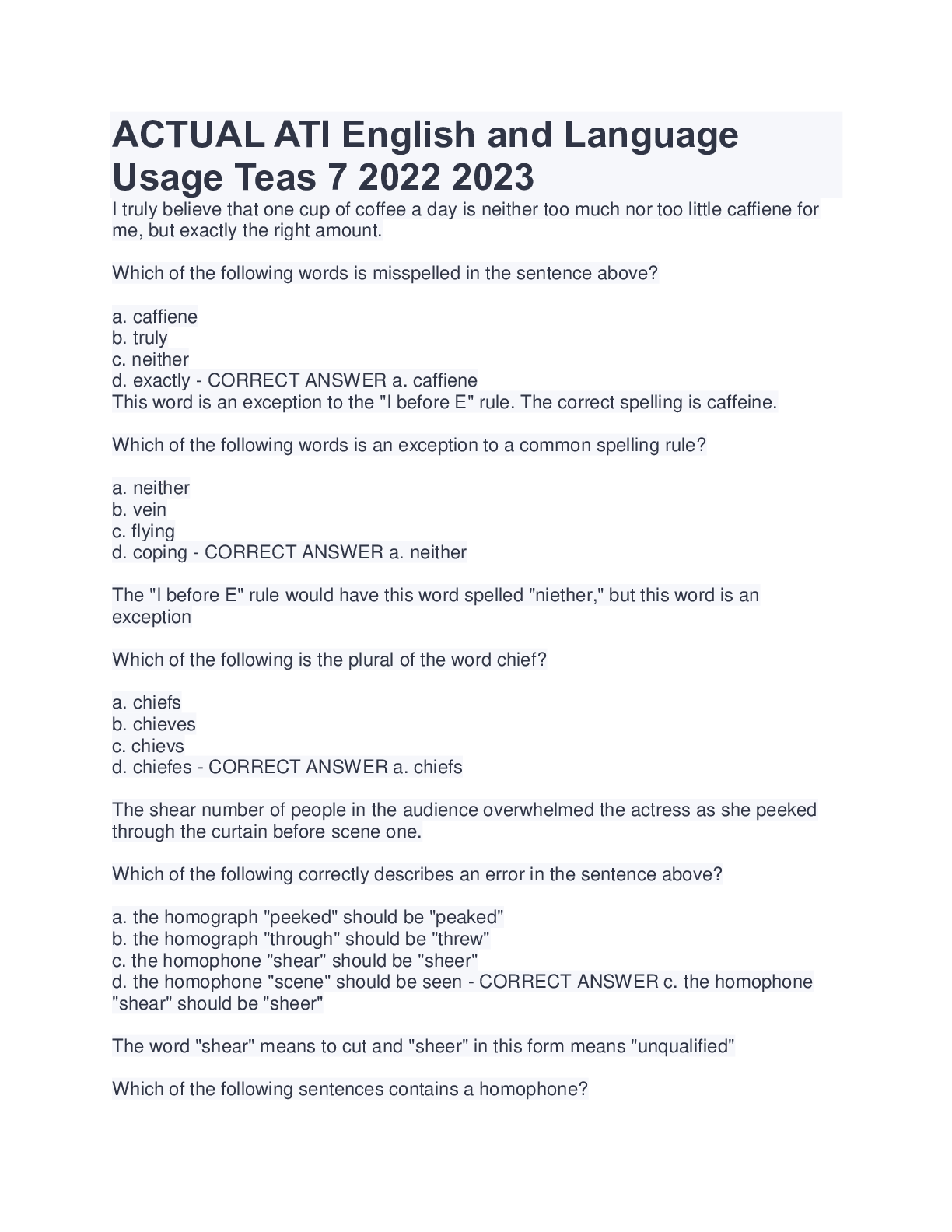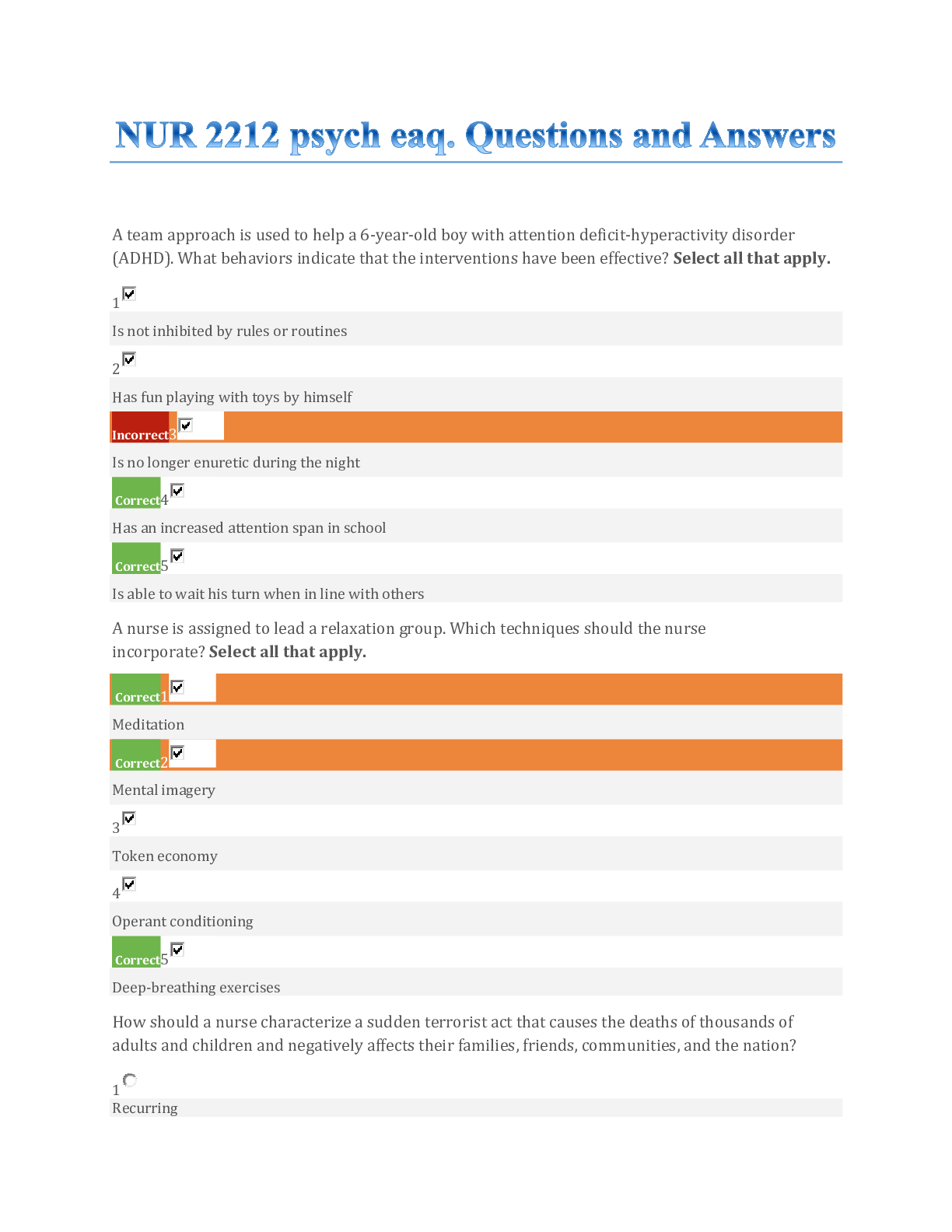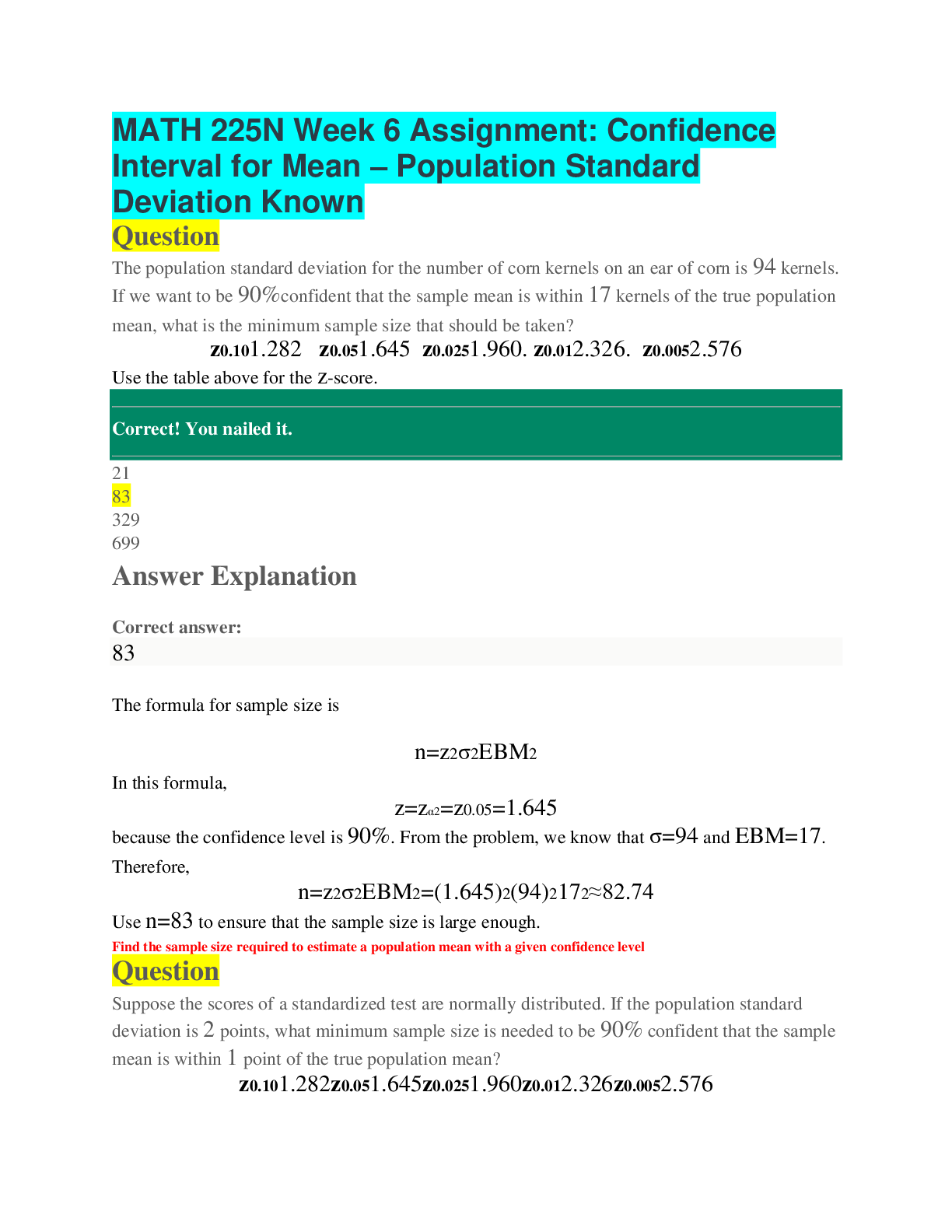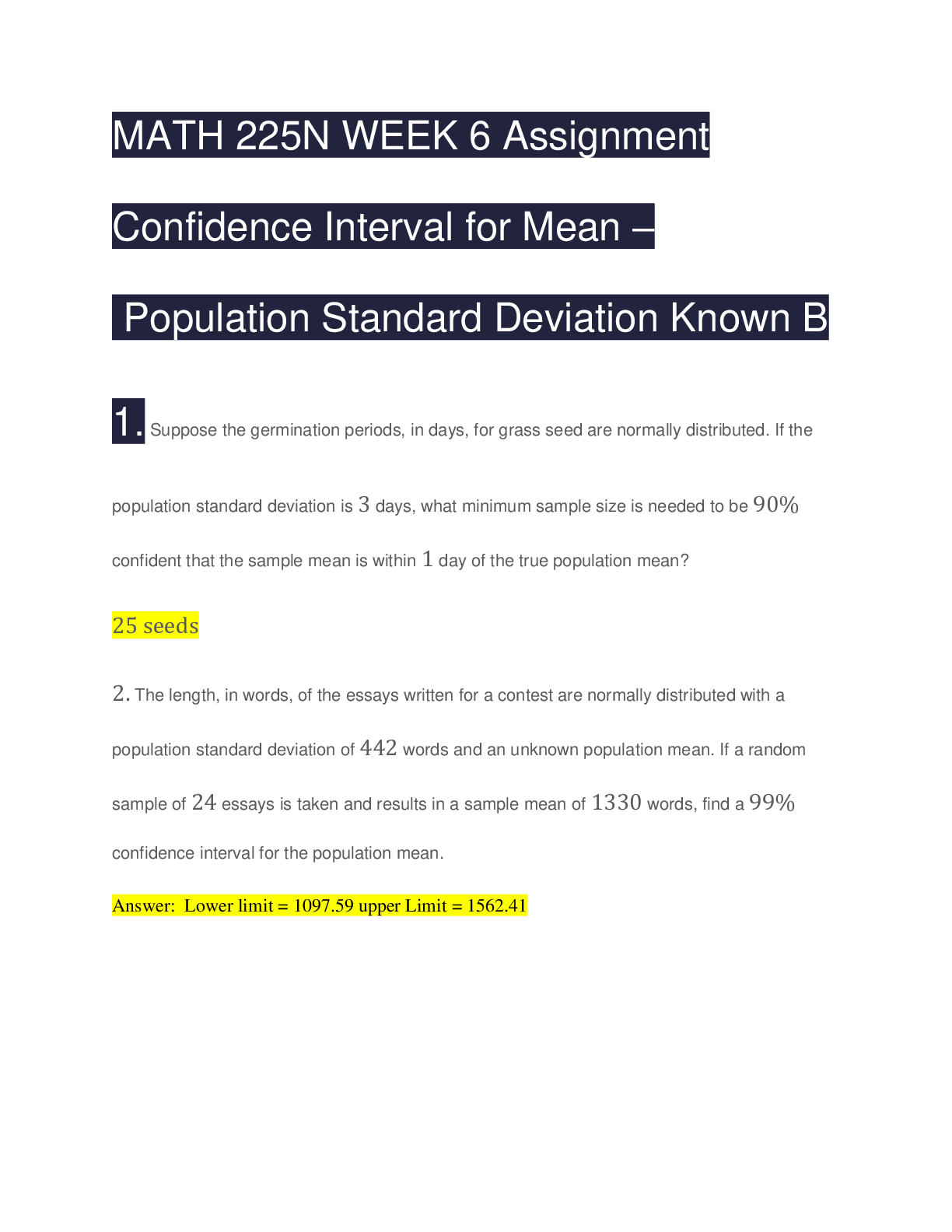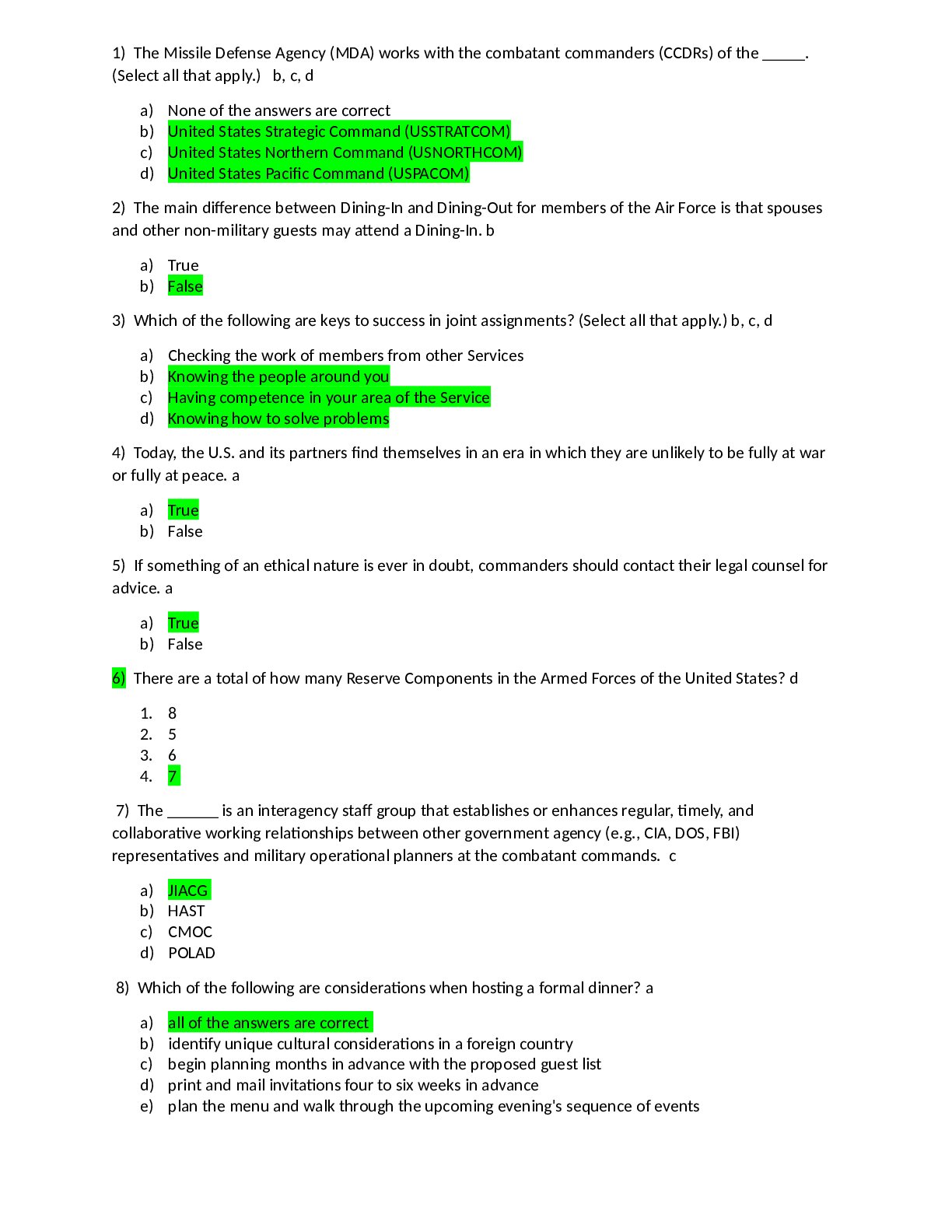Health Care > EXAM > HESI EXIT EXAM QUESTION AND ANSWERS VERIFIED CORRECTLY 2022/2023 GRADED A+ (All)
HESI EXIT EXAM QUESTION AND ANSWERS VERIFIED CORRECTLY 2022/2023 GRADED A+
Document Content and Description Below
HESI EXIT EXAM QUESTION AND ANSWERS VERIFIED CORRECTLY 2022/2023 GRADED A+ 1. A client tells the nurse that he is suffering from insomnia. Which information is most important for the nurse to obta... in? A. The client's usual sleeping pattern B. Whether the client smokes C. How much liquid the client consumes before bedtime D. The amount of caffeine that the client consumes during the day Rationale: The first thing to determine is the client's usual sleeping pattern and how it has changed to become what the client describes as insomnia. Options B, C, and D provide additional information after option A is ascertained. 2. A client has been on a mechanical ventilator for several days. What should the nurse use to document and record this client's respirations? A. The respiratory settings on the ventilator B. Only the client's spontaneous respirations C. The ventilator-assisted respirations minus the client's independent breaths D. The ventilator setting for respiratory rate and the client-initiated respirations Rationale: The nurse should count the client's respirations and document both the respiratory rate set by the ventilator and the client's independent respiratory rate. Never rely strictly on option A. Although the client's spontaneous breaths will be shallow and machine-assisted breaths will be deep, it is important to record machine-assisted breaths as well as the client's spontaneous breaths to get an overall respiratory picture of the client. 3. Six hours following thoracic surgery, a client has the following arterial blood gas (ABG) findings: pH, 7.50; PaCO2, 30 mm Hg; HCO3, 25 mEq/L; PaO2, 96 mm Hg. Which intervention should the nurse implement based on these results? A. Increase the oxygen flow rate from 4 to 10 L/min per nasal cannula. B. Assess the client for pain and administer pain medication as prescribed. C. Encourage the client to take short shallow breaths for 5 minutes. D. Prepare to administer sodium bicarbonate IV over 30 minutes. Rationale: These ABGs reveal respiratory alkalosis, and treatment depends on the underlying cause. Because the client is only 6 hours postoperative, he or she should be assessed for pain because treating the pain will correct the underlying problem. A PaO2 of 96 mm Hg does not indicate the need for an increase in oxygen administration. The PaCO2 indicates mild hyperventilation, so option C is not indicated. In addition, it is very difficult to change one's breathing pattern. The use of sodium bicarbonate is indicated for the treatment of metabolic acidosis, not respiratory alkalosis. [Show More]
Last updated: 2 years ago
Preview 1 out of 11 pages

Buy this document to get the full access instantly
Instant Download Access after purchase
Buy NowInstant download
We Accept:

Reviews( 0 )
$19.00
Can't find what you want? Try our AI powered Search
Document information
Connected school, study & course
About the document
Uploaded On
Mar 07, 2023
Number of pages
11
Written in
Additional information
This document has been written for:
Uploaded
Mar 07, 2023
Downloads
0
Views
209

